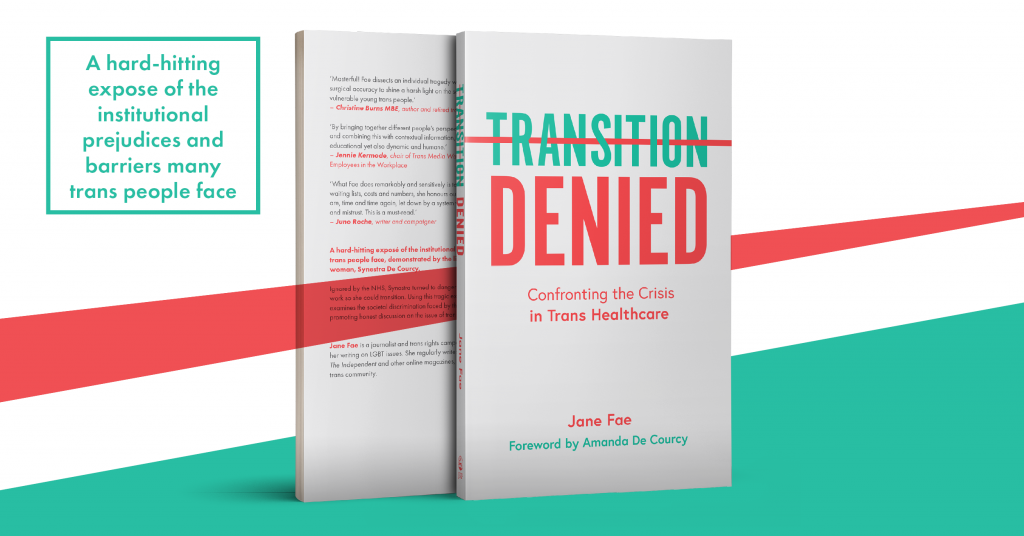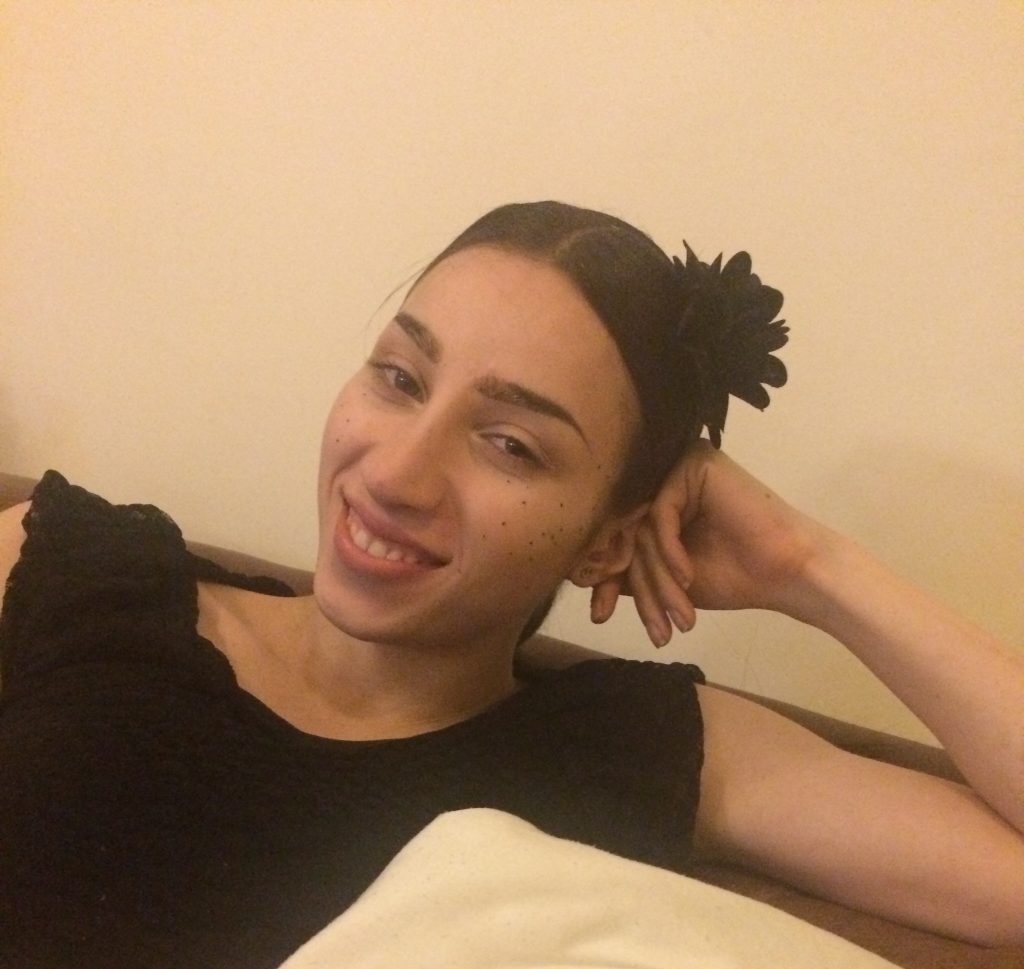
Transgender campaigner, Jane Fae, exposes the institutional and societal discrimination that a young trans woman, Synestra de Courcy, faced before her untimely death aged just 23, in her new book, ‘Transition Denied.’
Here, Jane reflects on her motives for writing the book, and on what’s happened since.
Was I angry before I wrote my book about Synestra’s life and untimely death? Yes. No. I don’t know.
People tell me I am possessed of an unnatural calm. That I join TV and radio “debates” with the most appalling bigots and I answer politely and give the appearance of never being ruffled. Which is odd. Because that is not how it feels to me, at all.
I am angry much of the time. At being asked the same silly, untutored question about the same life-and-death issues (for trans people) for the umpteenth time. “Do some research!” I want to say.
Or: “Just listen!”
Or even: “Get a life!”
Because like so many trans folk I cannot begin to understand either the obsession with the minutiae of our daily lives, or the uneducated hate so often directed towards us: whether that is national papers conflating gender non-conformity with “trans agenda” – or public forums, like mumsnet, wherein every person with an opinion is out deconstructing treatments for trans kids agreed by international experts.
Dare I suggest that maybe they know less about the subject than people who spend their lives working in the field, and a little less arrogant certainty on the subject might be in order, and the cry goes up of “silencing”. Ask how they would feel if the same approach – judging the validity of a treatment in terms of the regrets of a few – were applied to life and death issues such as reproductive control and one is “anti-woman”.
The sheer illogical hypocrisy of what is daily served up as debate makes me itch. But, having socialised somewhere along the line not so much as male but as my grandmother, I know better than to show anger.
Still, there are times. As now, the coda to the work I did with Amanda De Courcy, in bringing to the public’s attention the disgraceful story of how her daughter, Synestra, was treated at key points along the way, by the medical profession.
In particular, by GPs, who either did not believe that she was trans or, believing, did nothing to help her find help and support.

That was dereliction, pure and simple. If that were all it were, I’d be cross, certainly, but at least I might be able to brush them aside, as the insignificance that they are: yet more trans-sceptic doctors in positions where their scepticism can do real harm to trans people.
But that is not the whole of the picture. There is history, which the book explains: the entirety of #TransDocFail, covered in my book, revealed how parts of the NHS appear to have issues with trans folk. The “trans broken arm” syndrome, meaning that if a trans person arrives at A&E with a broken arm, some physicians refuse to do anything until an endocrinologist has been consulted.
You think I’m joking? Sadly, no.
There is the back-covering by senior members of the BMA, which justifies GPs not providing the most basic of services of trans patients because… because they might get sued!
Really? I know of few, if any, successful suings of GPs for inadequately supporting their trans patients. All too many instances of trans-friendly GPs reported for their trans-friendliness by sceptical colleagues.
And I know how the law works the other way around. What went wrong for Synestra? I asked those involved in her care: sought insight that might help other trans people, other GPs facing difficult ethical questions. Or at least, difficult questions as far as they were concerned.
Oh, but they were quick to respond then. Name them and I’d be hearing from their lawyers. Of course I would. Because their reputations matter far more than any single trans life. So, my book tells of failings that reflect on GPs as a whole, as a profession and besmirches the reputation of the many excellent GPs I have encountered – including my own GP today – because I may not write about the bad ones.
And quick as they have been to respond to my request, so the NHS as a whole has been slow to respond to requests from Synestra’s parents for sight of her records. We are now in limbo.
That grey no-man’s land between “you-didn’t-tick-the-right-boxes” and “we-don’t have-to-help-you-anyway”. Because although an individual’s legal representative MAY request sight of the medical records of a deceased relative, that is not a given. Records may be held for reasons unspecified, including GP objection, and that appears to be the case here.
More detail on the whys and wherefores may be found at GayStarNews. But the bottom line: yet again, this sucks!
And yet again, yes. I am angry. But I am used to it. Used to the constant stream of outrage heaped onto trans folk and their friends and relatives that would spark instant apoplexy if done to, say, a cis journalist.
And I know the rules. Speak politely. Do not let that anger out, don’t let your temper show for a moment. Or if you do, be condemned as unreasonable and violent and everything everyone knew about trans folk in the first place.
Am I angry? Of course I am.
I wrote a polite book to talk about it.
For more information and to buy the book, follow this link.
Follow us on Twitter @JKPGender or Facebook @JKPGenderDiversity for more exclusive content from our authors. Follow Jane Fae on Twitter @JaneFae.
My son is on his trans journey and some individuals in the BHS have been far less than helpful, his whole statement has been pushed back because of one consultant taking matenaty leave, they have now put a locum in place but only after those who use the service put in complaints and made noise about the lack of service in the area, as it is he has to wait a year and travel hundreds of miles to get what is needed , he is not new to this as he has been moving through the hoops for over five years, the first on being finding a GP whos personal beliefs didn’t get in the way of a referral – yes that still is happening in 2018